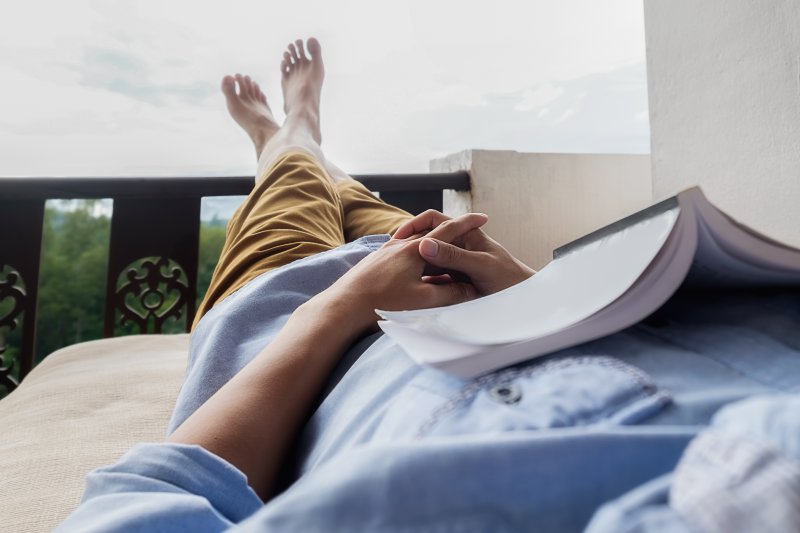
It can be tempting to set an alarm on your phone and allow yourself to take a 30-45-minute nap during the day. When fatigue sets in because of poor rest the night before, it can seem harmless to curl up on the couch and get a bit of shut-eye. Unfortunately, this habit can have a negative effect when it comes to bedtime, especially if you have sleep apnea. Learn why you should avoid napping and how you can start getting better rest at night.
Why is Napping Bad for Those with Sleep Apnea?
There are a few reasons why sleep experts recommend that you not nap if you have sleep apnea:
- They can alter your sleep schedule
- They can reduce what is called your “sleep debt,” which means you’ll be less tired at bedtime
- You may feel worse after a nap if you have sleep apnea because you may not be wearing a CPAP or oral appliance
- You may find it harder to establish a consistent sleep routine
How to Set Yourself Up for a Successful Night’s Rest?
Although taking a short nap might seem like a good idea, you should try to avoid it at all costs and instead set yourself up for better nighttime rest. You can do this by:
- Adhering to a sleep schedule, which means going to bed and waking up at the same time every day. You should try to get 7-9 hours of sleep.
- Using a sleep device (i.e., CPAP or oral appliance) to help encourage better breathing so that you don’t experience airway obstruction throughout the night.
- Finding a sleep position that is comfortable and keeps you from snoring. You might try elevating your head or sleeping on your side or stomach.
- Adding moisture to your bedroom with the help of a humidifier. This cuts down on dry mouth, which can exacerbate sleep apnea symptoms.
- Avoiding naps throughout the day.
- Adopting a healthy diet to help manage your weight and giving up unhealthy habits like smoking and excessive alcohol consumption.
Why Choose an Oral Appliance Over a CPAP
A CPAP may be the first thing a sleep expert recommends; however, if you see your dentist for treatment, they’re more likely to suggest an oral appliance.
While a CPAP (continuous positive airway pressure) can be effective, it’s often bulky and loud. Many patients struggle to use their CPAP because of how uncomfortable it can be with the mask and tubing that are required.
An oral appliance, though, is customized to fit comfortably inside your mouth so that you breathe freely and avoid loud noises and bulky machinery.
The next time you feel tired during the day, don’t give in to temptation and take a nap. Instead, adjust your nighttime routine to ensure better sleep quality in the long run.
About the Practice
At Westgate Dental Care, our dentists are ready to visit with you to discuss your sleep apnea concerns. Trained to provide treatment to those who have a formal diagnosis, we can provide customized oral appliances that keep the airway open so that fewer nighttime interruptions occur. If you struggle with daytime fatigue and are prone to napping, visit our website or call (847) 908-3684 to schedule a consultation so that we can help.
